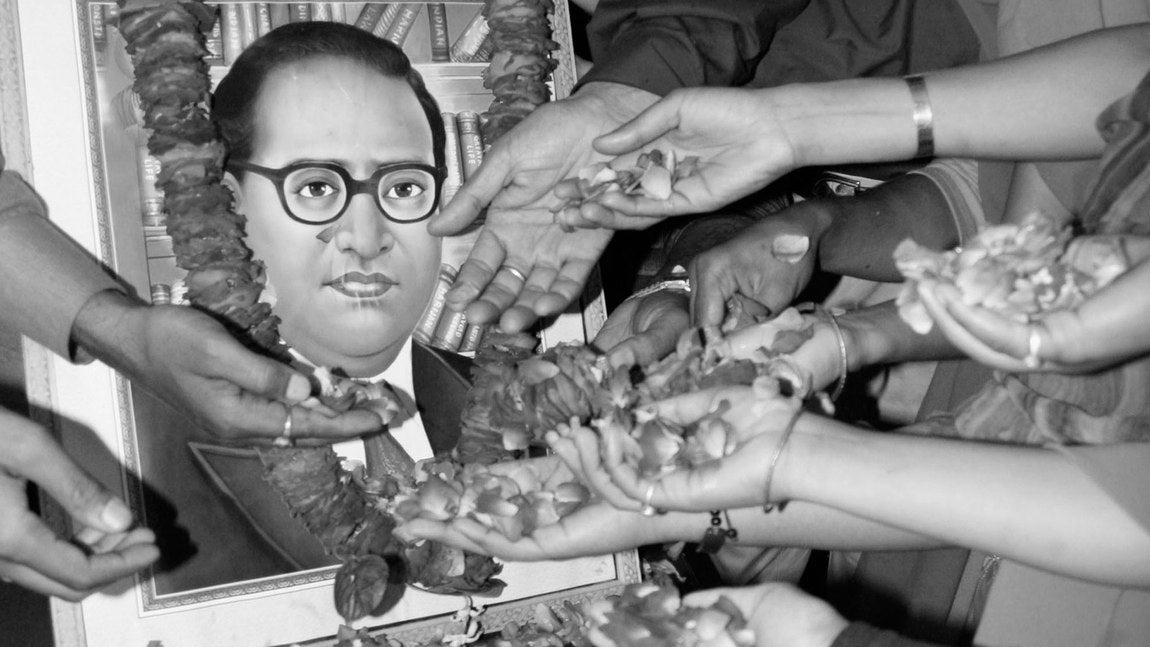It was during my college days when I noticed Dr B.R. Ambedkar as someone I could connect with. Of course, I had studied about him as the father of the Indian constitution and as a Dalit leader – two facts which had no immediate effect on me back then.
I live in a village on a hilltop and belong to the Malai Araya tribal group of Kerala which converted to Christianity as early as the 1840s. I grew up here in this place knowing nothing much about caste-based discrimination. Studying in a school founded by the Church Missionary Society, with students from my own community, I had accepted everything as normal. I could only see people just like me, and while filling the caste category column when needed, as ‘ST, Christian Malai Araya’, I never felt anything special or different.
But, Sunday worship at the church told me about I belong to a chosen group of people, “God’s people”, and this was followed by a narration of the conversion process which happened five generations ago. Pastors and priests used to repeat those stories, and I took to them: “Your forefathers lived and died like beasts, worshiping trees and stones. You could have died like them, but Jesus chose you to be redeemed and He sent the missionary Henry Baker to us.”
I felt sympathy for those forefathers and I rejoiced in my fortune to be saved by Jesus. For the missionary, I felt immense love and I started dreaming of becoming a missionary like him. It was the best thing I could imagine, to become someone who helps “transform beasts into humans”.
As Protestant Christians, we don’t keep pictures or idols and what I had at home as symbols of spirituality was many copies of the Bible.
My degree and PG days in Catholic managed colleges taught me what it means to be elite and not, and how class and caste differentiate you from others of the same religion. When I joined for a PhD programme at the Central University of Kerala, I chose to not be involved in politics. A university space demands certain things out of you, it initiates a clear classification of what you are, where you stand, and for whom you talk.
Also read: Book Extract | Stories of Courage, Hope and Big Dreams ‘From the Margins’
The facts which couldn’t touch me before helped to make a choice this time. I realised however liberal and progressive I may try to be, people want my caste as a token always, everywhere. I could witness how shocked people are after finding out that I belong to a tribe. I was confused about whether or not to reveal this “shocking truth” when I met new people. But it became mandatory, somehow, to avoid collateral damage in the future. People would take me for a savarna Christian based on my skin colour only to find out that the made a wrong assumption.
In fact, I started to enjoy all those situations in which people fell into embarrassment over my identity. Being a tribal is difficult in Kerala, as this progressive state regards tribes only as people who live in the exact opposite side of its reality, or as a threatening, defaming factor to its world class image.
Being a tribal Christian is again problematic. “Can tribals be Christian? Tribes who converted are not tribes anymore, right? These tribal Christians shouldn’t get any reservation as they cheated their own community” etc. are a few of the questions I have faced.
I could appropriate my religion and its principles over the years. I was never afraid to do it on my own terms, to rewrite biblical stories and to redefine Christ according to my fancies. That helped me escape from the insecurities of being in a world driven by unilateral realities. I will do the same for my politics, making it very personal.
It inspires me that Ambedkar found Christ and Buddha as two captivating figures after his studies on different religions. He had asked Christians to be politically active specifically. I believe the emancipatory possibilities of Christianity can go along with the ideals of social justice and equality, only if Dalit and tribal Christians in India start to assert their political rights.
I find it exciting to keep copies of the constitution at home, along with a picture of Ambedkar as well as a Buddha statue. I got that courage by a self-assertion which gives me the freedom to personalise, and to mix and match my political choices and symbols.
It is important to emphasise what you are and how unique your experience is rather than being insecure and uncomfortable among the dominant voices trying to overpower you. That is why I believe in the infinite flexibilities and possibilities of my identity. I am a tribal Christian woman, and an Ambedkarite – however complicated or incompatible the world finds it.
Jaincy John is a research scholar at the Department of English and Comparative Literature, Central University of Kerala. Her work is on caste, conversion and Christianity. She is active in Ambedkarite politics. She is interested in Dalit feminism, minority rights and tribal history.
Featured image credit: Reuters

